What are Balers?
Balers are specialized pieces of agricultural and industrial machinery designed to compress, cut, and bind materials into compact, manageable bales for easier handling, transportation, and storage. They are commonly used in the agricultural sector to process crops like hay, straw, or cotton, but also find usage in recycling facilities where they help in bundling materials such as paper, cardboard, plastic, or metal for recycling purposes.
The principle behind a baler's operation is relatively straightforward. Material is fed into the machine either manually or automatically, and from there, it is compacted by a hydraulic arm or mechanical system. Once the material reaches a predetermined density, it is then tied or wrapped using twine, wire, netting, or plastic wrap to maintain its compact shape. This process can vary slightly depending on the type of baler being used.
Balers serve an essential role in modern agriculture and waste management by helping to maximize efficiency and reduce costs associated with material handling. For farmers, they are crucial in preserving the nutritional value of forage crops through the creation of silage bales that can be stored and used as animal feed throughout the year. In industrial settings, balers contribute to environmental sustainability efforts by facilitating the recycling process.
Types of Balers
The baler market offers an array of models to meet different needs based on volume, material type, and desired bale shape. Each type of baler comes with its specific features and common use cases:
Round Balers: These machines produce cylindrical-shaped bales and are typically used in agriculture for processing hay or straw. The design allows for continuous operation as the chamber fills up and rolls the crop until it reaches sufficient size before wrapping.
Square Balers: Square or rectangular bales are the product of these balers. They are preferred when uniformity and ease of stacking for transport or storage are required. They can be found on farms as well as in manufacturing plants that deal with recyclable materials.
Mini Balers: Designed for small-scale operations such as small farms or specialty recycling operations. Mini balers take up less space but still provide the functionality needed to produce smaller bales of hay, straw, or other materials.
Large Square Balers: These heavy-duty machines are intended for large-scale agricultural or industrial use and can produce large square bales that weigh several hundred kilograms. Their high output makes them suitable for commercial farming operations or large recycling centers.
High-Density Balers: When space efficiency is paramount, high-density balers compress materials to achieve extremely dense bales that maximize transport efficiency and minimize storage space.
How to choose Balers
Selecting the right baler involves considering several factors that align with your specific requirements. The type of material you need to bale, the volume of production, storage capabilities, transportation logistics, and whether you're working within an agricultural or industrial context all play a role in determining the most suitable baler for your business.
Material Type: Different balers handle various materials more effectively. For example, a round baler might be ideal for hay or straw in an agricultural setting, while a high-density baler could be better suited for compressing recyclable materials like cardboard in a manufacturing plant.
Production Volume: The amount of material you need to process will influence whether a mini baler is sufficient or if a larger model is necessary to keep up with demand.
Bale Size and Shape: Consider how the bales will be used and transported after they're created. Uniform square bales might be preferable for easy stacking and shipping, while round bales could be more suitable for on-farm use where they're directly fed to livestock.
Space Constraints: The size of your operation area might limit the size of machinery you can accommodate. Ensure that you have enough room not just for the baler but also for safe operation around it.
Automation Level: While some operations may benefit from fully automatic balers that require minimal human interaction, others might opt for semi-automatic or even manual models due to cost considerations or specific operational preferences.
Best Balers on Alibaba.com
Alibaba.com stands out as a global marketplace where businesses seeking to streamline their operations can discover a wide variety of balers tailored to meet their unique needs. Whether it's optimizing agricultural productivity or enhancing recycling efficiency, Alibaba.com connects buyers with suppliers offering machinery that embodies innovation and reliability.
The platform's intuitive interface allows buyers to filter search results according to various specifications such as local service location, applicable industries, core components, and key selling points—ensuring a match with the essential requirements of their operations. Moreover, services like Trade Assurance provide an added layer of security by safeguarding payments until delivery fulfillment.
Alibaba.com's commitment to fostering international trade is evident through its multilingual support and mobile-friendly features that make transactions seamless regardless of geographic location. By offering a diverse selection of machinery from trusted suppliers across numerous industries worldwide, Alibaba.com empowers businesses with the tools necessary to thrive in competitive markets while adhering to their commitment towards sustainable practices.
Common FAQs for Balers
What types of materials can balers process?
Balers are versatile machines that can compress and bind a variety of materials, including agricultural products like hay and straw, as well as recyclable materials such as paper, cardboard, plastic, and metal.
How does a round baler differ from a square baler?
Round balers create cylindrical bales that are typically used for agricultural purposes and can be stored and handled differently than square bales. Square balers produce rectangular bales that are easier to stack and transport, making them suitable for both agricultural and industrial applications.
Can mini balers be used for industrial purposes?
Mini balers are designed for small-scale operations and can be used in both agricultural and industrial settings where space is limited or the volume of material to be processed is lower.
What should I consider when choosing a baler for my business?
When selecting a baler, consider the type of material to be processed, the volume of production, bale size and shape requirements, space constraints at your facility, and the level of automation needed.
Are there fully automatic balers available on Alibaba.com?
Yes, Alibaba.com offers a range of fully automatic balers from various suppliers that cater to different industry needs, allowing for efficient and minimal human intervention in the baling process.
What is meant by 'high-density' in the context of balers?
High-density balers are capable of compressing materials into very dense bales, which maximizes transport efficiency and reduces storage space requirements.
How do I ensure the baler I choose is compatible with my existing machinery?
You should check the specifications of the baler to ensure it matches your power supply, space availability, and any other machinery interface requirements. Suppliers on Alibaba.com often provide detailed product information to assist with compatibility assessments.
What after-sales services are typically offered with the purchase of a baler?
After-sales services may include online support, video technical support, field maintenance and repair service, or engineers available to service machinery overseas. Service offerings vary by supplier on Alibaba.com.
Can I find balers that operate on different voltages on Alibaba.com?
Yes, Alibaba.com lists balers that operate on different voltages to accommodate various regional power supply standards. You can filter search results based on voltage requirements.
Are there any environmentally friendly options for balers available?
Balers inherently contribute to environmental sustainability by aiding in waste management and recycling. Some models may also be constructed using more eco-friendly materials or designed to consume less energy.







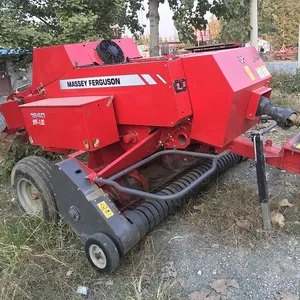
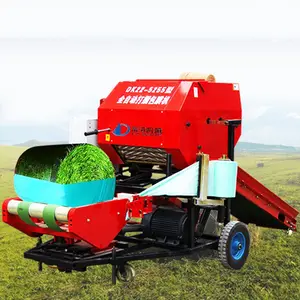



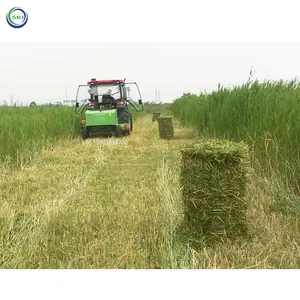
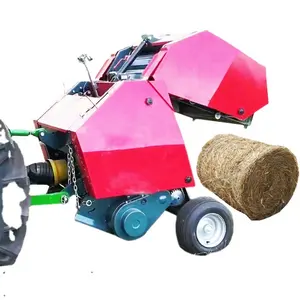


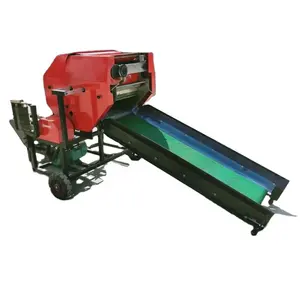



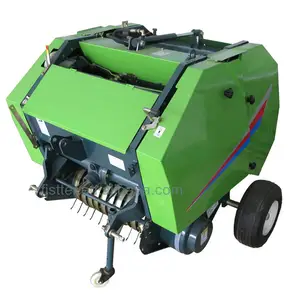

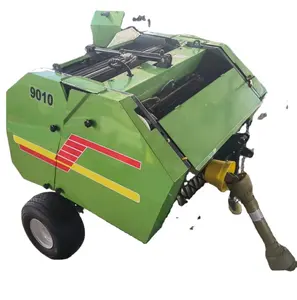




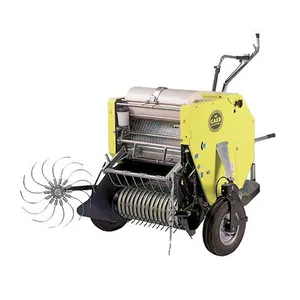
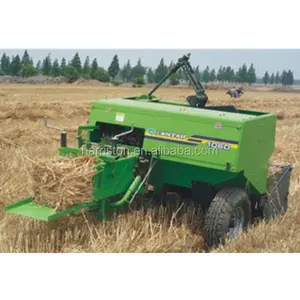

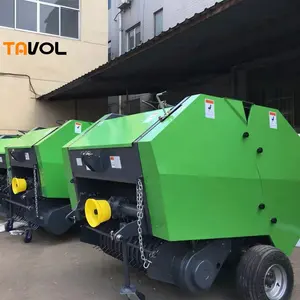
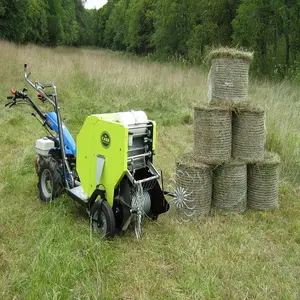
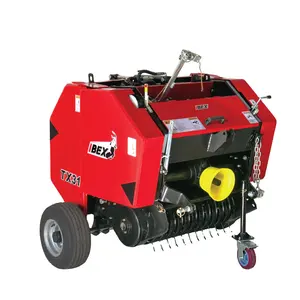


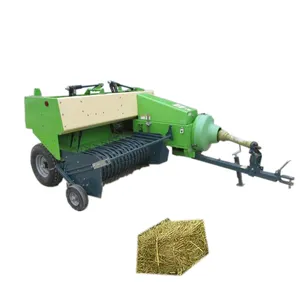
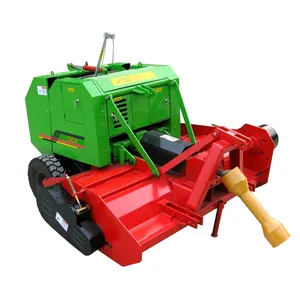
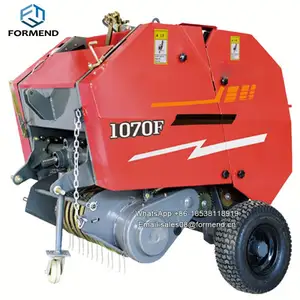




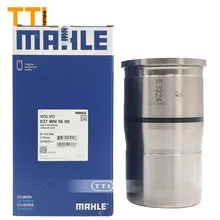
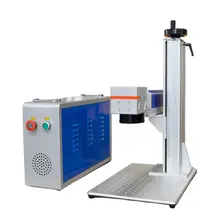




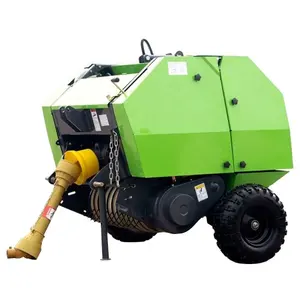
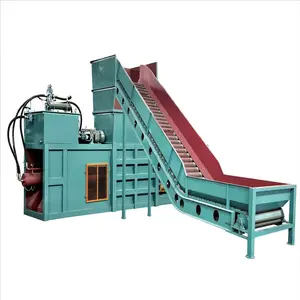
























 浙公网安备 33010002000092号
浙公网安备 33010002000092号 浙B2-20120091-4
浙B2-20120091-4